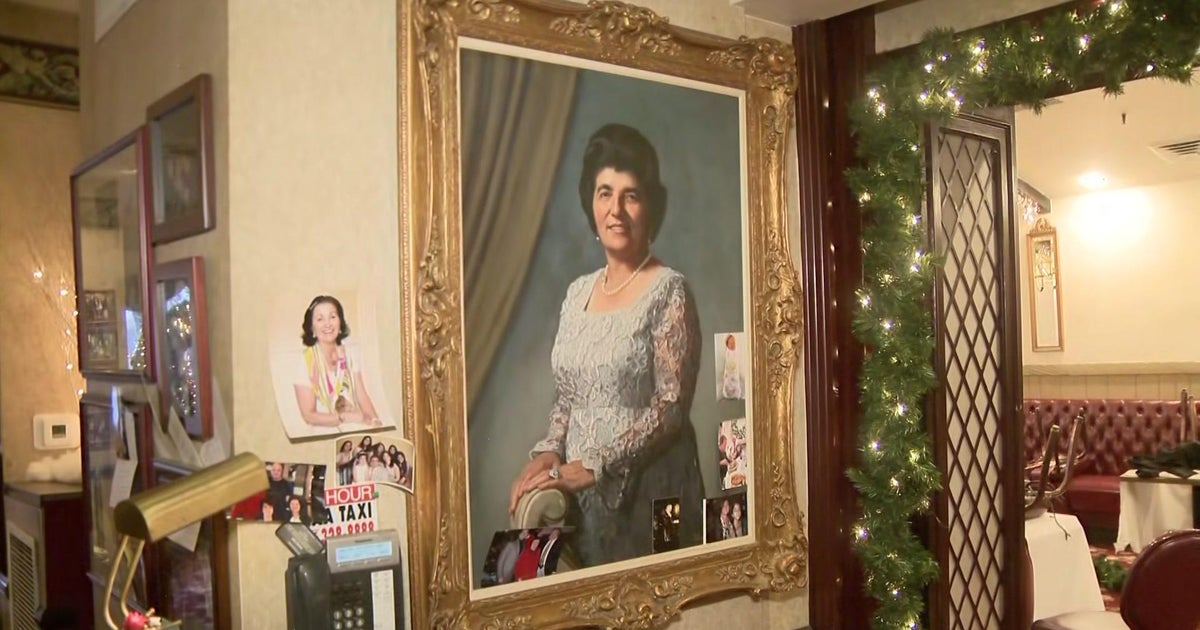Columbia University students worried protests will disrupt May 15 commencement. Here's the latest
NEW YORK -- Sunday marked the 12th day of protests at Columbia University and the mood was calm as an array of tents remained on the lawn.
Pro-Palestinian demonstrators continued to say they'll camp out for as long as it takes the school to divest from Israel.
"If our demands that help free the people of Palestine help liberate Palestinian people are not met, we are staying here," a student named Jared said.
Classes at Columbia end Monday, and preparations are underway for graduation on May 15. Some students were already debuting their gowns.
"I think tensions are easing a bit"
Concern is spreading across campus that the ceremony could be moved or disrupted.
"It's such a tradition to have graduation on campus, so, yeah, that stinks, but we are a unique group. First year COVID and now this. It is what it is," senior Kyle Mosher said.
"I have family and friends who are looking to come celebrate, so it's a disruption," student Jeremy Wahl said.
Wahl and his wife, Taylor Francisco, are both graduating from the school next month, a day they've been working hard for.
"I'm uncertain. I'm not sure what is going to happen. There's not much communication about it," Francisco said.
Senior Gary Winthrop said he had to take his finals remotely after a turbulent week on campus.
"I think tensions are easing a bit. The president, I think, is doing a good job of handling the situation," Winthrop said.
Columbia President Minouche Shafik faced criticism after calling in the NYPD to arrest more than 100 protesters on April 18.
Masters student Jared said he is still worried he could face repercussions for protesting.
"Yeah, I'm afraid, but if I cheered them on and didn't participate I would feel guilty and there's power in numbers," Jared said.
That sentiment that seems to be spreading to other college campuses, including NYU and City College of New York. Similar protests are happening around the country. In Washington, D.C., students set up an encampment at George Washington University. At Indiana University, police arrested students and faculty members protesting on the lawn. There were also arrests in Massachusetts at the campus of Northeastern University.
"Political action has gotten shrill on campus and I don't know what this is achieving," Wahl said.
At Columbia, both students and protesters said they looking forward to a resolution.
"This could end tomorrow if the president agrees to divest and we can all get back to our lives," Jared said.
Mayor Eric Adams said the police will only intervene if the school requests them to do so.
"Once that request is made, you want to do it with the minimum amount of force, because you are talking about young people and you're not trying to in any way jeopardize their safety," Adams said. "As of this time, Columbia University stated that they want to sit down and speak with the students and the other college campuses as well, and we're not going to do anything unless the college campuses request such."
Tent city remains set up on Columbia University campus
The encampment is still up on Columbia's main lawn, feet away from Israeli flags and posters of Israeli hostages.
Protesters say they won't leave until their demands are met, including for Columbia to divest from companies that do business with the Israeli government.
"Columbia needs to divest from any corporation that is profiting off of genocide, apartheid or displacement of Palestinians in Israel," said one student protester.
"I am encouraged that the world is paying attention to what's happening," Columbia senior AnnaMaria Belevitch said.
Student organizers have been meeting with school administrators to negotiate an agreement to dismantle the unsanctioned tent city, which was first erected last Wednesday.
Shafik has issued multiple deadlines to reach that agreement, but has repeatedly pushed it back, citing continued progress. Student protesters told CBS New York on Friday that there is currently no deadline to reach an agreement and they are taking things hour by hour.
Impact of Columbia University protests on day-to-day life
Senior Matthew Rowell can't help but describe the past few days on campus as "anxiety-inducing."
"Any step you took you saw a drone flying shortly overhead. Every morning, I woke up to helicopters flying right over campus, waking us up," he said.
Shany Granot-Lubaton's husband is a grad student at Columbia. They moved from Israel so he could attend classes at the university, which have all been virtual this week, through Passover, because of the protests.
"It's been really hurtful," Granot-Lubaton said.
Their young son also goes to the campus nursery.
"The last week was totally insane and we felt very unsafe. Our son's nursery stopped going to playgrounds and they're not going outside to play in campus, which was our everyday kind of play and fun place," Granot-Lubaton said.



